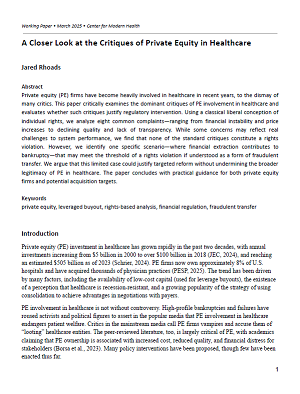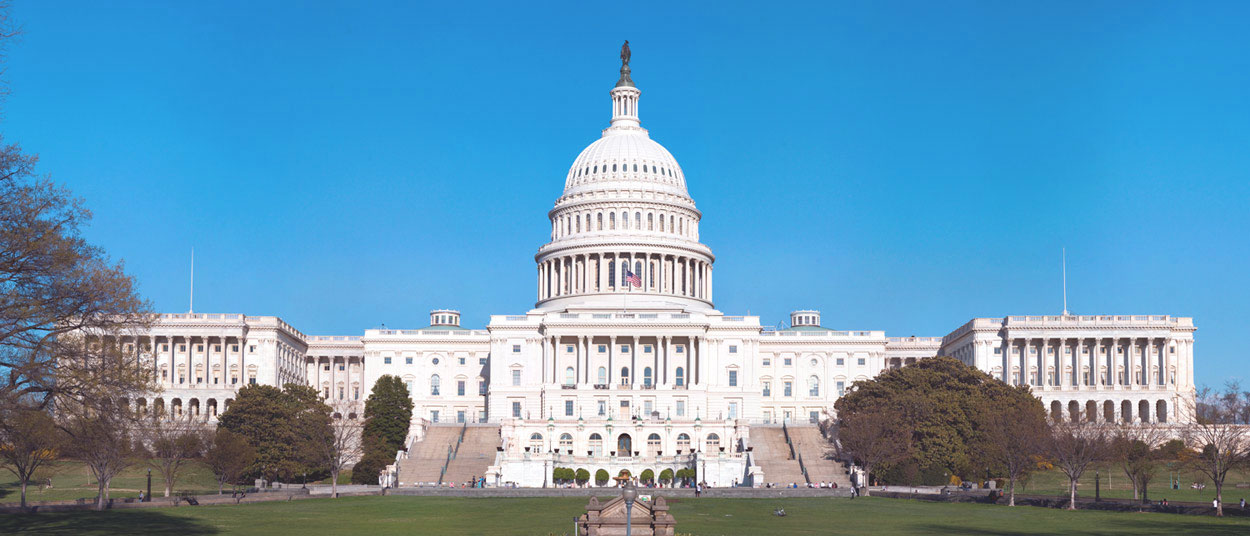A Closer Look at the Critiques of Private Equity in Healthcare
Growing involvement of private equity firms in healthcare has drawn criticism. This working paper takes a critical look at the most common complaints about PE practices and evaluates whether government intervention is warranted.
View/Download [PDF]
Rhoads, J. "A Closer Look at the Critiques of Private Equity in Healthcare." (Working Paper). Center for Modern Health. April 2025.
Introduction
Private equity (PE) investment in healthcare has grown rapidly in the past two decades, with annual investments increasing from $5 billion in 2000 to over $100 billion in 2018 (JEC, 2024), and reaching an estimated $505 billion as of 2023 (Schrier, 2024). PE firms now own approximately 8% of U.S. hospitals and have acquired thousands of physician practices (PESP, 2025). The trend has been driven by many factors, including the availability of low-cost capital (used for leverage buyouts), the existence of a perception that healthcare is recession-resistant, and a growing popularity of the strategy of using consolidation to achieve advantages in negotiations with payers.
PE involvement in healthcare is not without controversy. High-profile bankruptcies and failures have roused activists and political figures to assert in the popular media that PE involvement in healthcare endangers patient welfare. Critics in the mainstream media call PE firms vampires and accuse them of "looting" healthcare entities. The peer-reviewed literature, too, is largely critical of PE, with academics claiming that PE ownership is associated with increased cost, reduced quality, and financial distress for stakeholders (Borsa et al., 2023). Many policy interventions have been proposed, though few have been enacted thus far.
In this paper we examine the main complaints and assess whether they justify intervention. We use an evaluation framework grounded in classical liberal values, emphasizing individual rights, voluntary exchange, and limited government intervention. This perspective differs from other philosophical approaches such as Rawlsianism, which prioritizes distributive justice and the welfare of the least advantaged, and Utilitarianism, which focuses on maximizing overall societal well-being. By contrast, our analysis is primarily concerned with whether private equity practices in healthcare violate individual rights—rather than whether they produce equal outcomes or maximize aggregate utility.
Our bottom line up front is that while some mainstream concerns about PE in healthcare may have merit in terms of outcomes or system performance, none of the typical critiques amounts to a violation of individual rights. That said, we do identify one particular scenario that—if conceptualized in a specific way—could potentially qualify as a rights violation and warrant policy intervention. We recommend further research and expert consultation to explore this scenario in greater depth.
